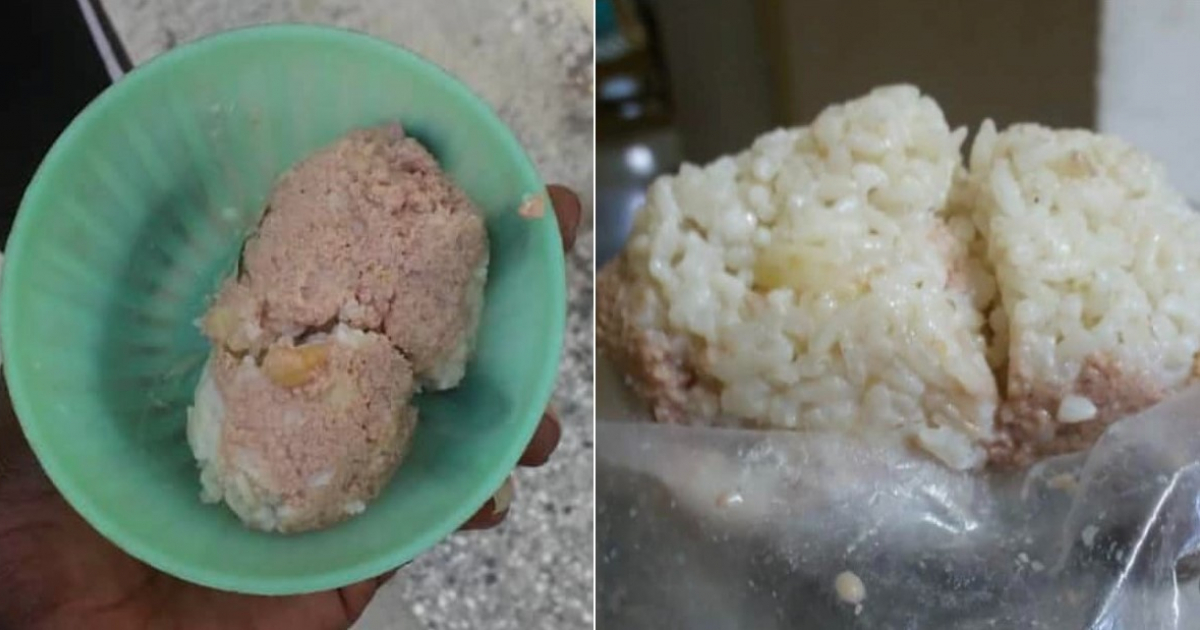Relatives of political prisoners and opposition activists have raised alarms over a significant cutback in the food provided to inmates in Cuban prisons, endangering those already suffering from severe nutritional deficiencies. The crisis has intensified across various detention facilities, where a marked decrease in already scarce food portions has stirred concern and led to protests among prisoners and their families, according to reports from Martí Noticias.
On January 6, the noticeable reduction in food rations was observed in several prisons, including the Combinado del Este, Havana's high-security facility, and Prison 1580, also situated in the Cuban capital. José Díaz Silva, an exiled opposition leader and president of the Movement for a New Republic, reported to the media outlet that prisoners have informed their families about the reduction in meal sizes.
"What used to be a 60-gram serving of rice is now only 50 grams," Díaz Silva explained, citing information from members of his organization who are incarcerated. In addition to the food cutback, overcrowding in the prisons has exacerbated the already dire food crisis, according to inmates’ families.
Ilsa Ramos, the wife of political activist Yasmany González who is imprisoned at Combinado del Este, confirmed the food shortage: "Yes, he says they reduced it because there are too many prisoners and not enough food. This started now in January," Ramos stated. A similar reduction in food portions has been reported at the women's prison in Guatao, also in Havana.
Luis Rodríguez, brother-in-law of political prisoner and writer María Cristina Garrido, claimed that the rice portions have been reduced and argued that the poor feeding conditions are part of a strategy to starve the inmates. "It's to starve them," Rodríguez asserted.
The food crisis in Cuban prisons is not a new issue. In April 2024, the Cuban Prison Documentation Center highlighted the poor quality of meals, the lack of substantial dishes, and the small serving sizes. Independent journalist Carlos Michael Morales, released last year after serving a two-and-a-half-year sentence for his involvement in the July 11 anti-government protests, described similar conditions, including inadequate nutrition and a shortage of basic necessities like soap and toothpaste.
"For breakfast, boiled herbs, practically without sugar, and they give a horrible-smelling minced meat, in tiny portions. Sometimes they provide a bar of soap, but it doesn't last the whole month, and a tube of toothpaste is given every 3 to 5 months," Morales detailed.
In March, independent artist Luis Manuel Otero Alcántara, imprisoned during the same protests, told the independent outlet El Estornudo that the food provided in prison is "pathetic." "You wake up at six in the morning, and breakfast is disgusting. Imagine, in a country where children currently have no milk, no bread, what can be left for a prisoner? Lunch is at eleven in the morning and dinner at six in the evening, all in pitiful conditions," he described.
On Friday, the non-governmental organization Cubalex reported that in 2024, it recorded a total of 1,559 human rights violations against detained individuals in Cuba. Highlighting figures of arbitrary arrests, violence, and harassment, the annual report presented by the U.S.-based NGO indicates that repression on the island remains systematic and deeply affects those facing violations of their fundamental rights.
Understanding the Crisis in Cuban Prisons
What is causing the food shortage in Cuban prisons?
The food shortage in Cuban prisons is reportedly due to an increase in the number of inmates and insufficient food supplies, leading to a reduction in already limited portions.
How has the reduction in food portions affected prisoners?
The reduction in food portions has exacerbated nutritional deficiencies among prisoners, putting their health at risk and leading to increased protests and outcry from inmates and their families.
What actions have been taken to address this issue?
While there have been protests and denunciations by families and activists, there is no indication that the Cuban government has taken significant steps to resolve the food crisis in prisons.
